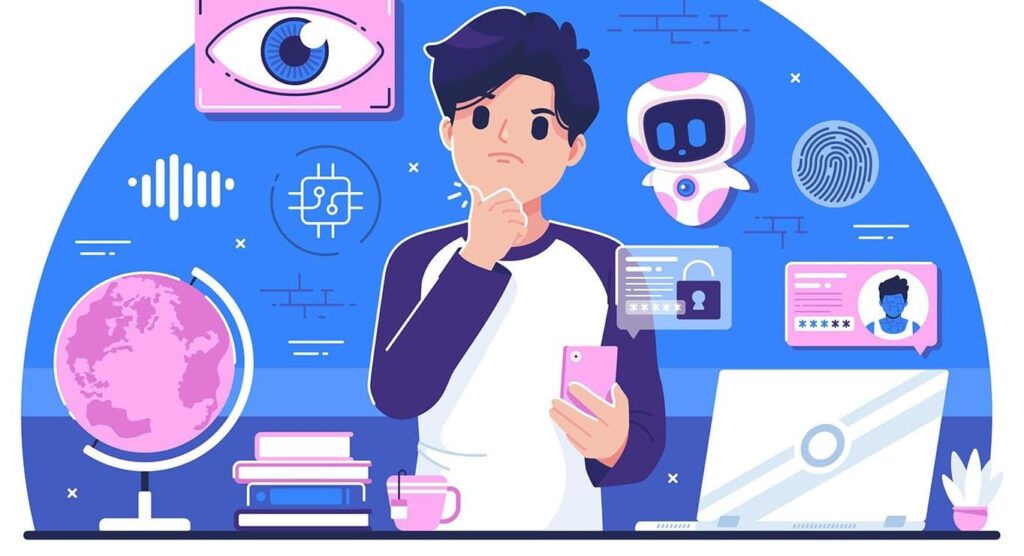Introduction
Social media and Internet algorithms aid in maintaining order by utilizing a set of signals and rules for ranking advertisements and search results to ensure that platforms and sites display articles, pictures, or videos of great interest to users. On the other hand, user experience involves an overall understanding of the individual’s values, needs, capabilities, and limitations while utilizing a platform or website. User experience relates to how operators find it pleasing and easy to use social media and the Internet. The social media and Internet algorithms’ impact on user experience includes enhancement of personalization and help in making rational decisions, although it limits individuals from accessing all data.
Personalization
Social media and Internet algorithms have improved user experiences by enhancing data personalization. Social Media platforms depend on personalized algorithms tailoring services at a personal level (Eg, Tønnesen & Tennfjord 2023, p. 1). Internet and social media algorithms improve user experience by utilizing a person’s browsing history to prioritize posts and suggest videos similar to like-minded users. Hence, personalization through the algorithm ensures that users get filtered content tailored toward specific interests and personal needs. Interacting with personalized services and content improves users’ experiences since people interact with limited information that aligns with their preferences and opinions. This aspect suggests that users remain engaged in social media. Therefore, Internet and social media algorithms ensure that users receive content aligned with their interests through personalization.

Making Rational Decisions
Social media and Internet algorithms have influenced how individuals make decisions. Algorithms include a sequence of commands or instructions that technological devices can utilize in solving a task (Vallejos et al. 2021, p. 2). Search engine results, product recommendations, and news feeds use the algorithms to help users to maneuver vast information available on the Internet. Moreover, social media and Internet algorithms help in ranking output results about research data. The results from algorithms ensure that users get appropriate information essential to making rational decisions. The technology is derived through observations and testing by particular mathematical formulae to ensure consistent results from search engines. Moreover, autocomplete strategies ensure that users get precise data highly ranked on Internet databases. As a result, social media and Internet algorithms aid in sieving unreliable information, enhancing user experience while guaranteeing that people make rational decisions from reliable data.
Information Limitation
Internet and social media algorithms have some negative impacts on user experience since they lead to limited access to information. Online technologies have contributed to personalization options affecting the content available for particular individuals (Sehl & Eder 2023, p. 322). Modern algorithms allow data filtering and prioritization affecting the kind of news, stories, videos, pictures, and other content that users access on social media platforms and the Internet. Besides, bloggers might customize their content for specific people through algorithms hindering some individuals from accessing detailed information. In this context, social media and Internet algorithms promote personalization, limiting user information. The users’ lack of access to proper data sets reduces knowledge diversity affecting their thinking.
Conclusion
Social media and Internet algorithms limit people’s knowledge, although they aid in making rational decisions and promote personalization, enhancing user experience. Nowadays, algorithms utilized on the Internet and social media platforms ensure that individuals receive streamlined data matching their interests. Besides, users can receive appropriate information corresponding to their search, ensuring they make coherent choices. However, personalization due to social media and Internet algorithms influences users to get limited information impacting their knowledge.
Reference List
Eg, R, Tønnesen, ÖD & Tennfjord, MK 2023, ‘A scoping review of personalized user experiences on social media: The interplay between algorithms and human factors’, Computers in Human Behavior Reports, vol. 9, pp. 1-17, viewed 17 July 2023, DOI: 10.1016/j.chbr.2022.100253.
Sehl, A & Eder, M 2023, ‘News personalization and public service media: The audience perspective in three European countries’, Journalism and Media, vol. 4, no. 1, pp. 322-338, viewed 17 July 2023, DOI: 10.3390/journalmedia4010022.
Vallejos, EP, Dowthwaite, L, Creswich, H, Portillo, V, Koene, A, Jirotka, M, McCarthy, A & McAuley, D 2021, ‘The impact of algorithmic decision-making processes on young people’s well-being’, Health Informatics Journal, vol. 27, no. 1, pp. 1-21, viewed 17 July 2023, DOI: 10.1177/1460458220972750.


